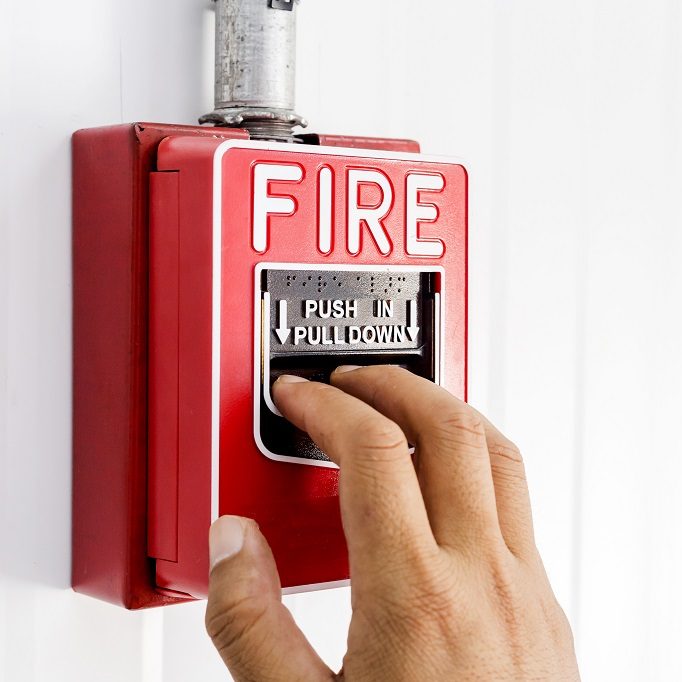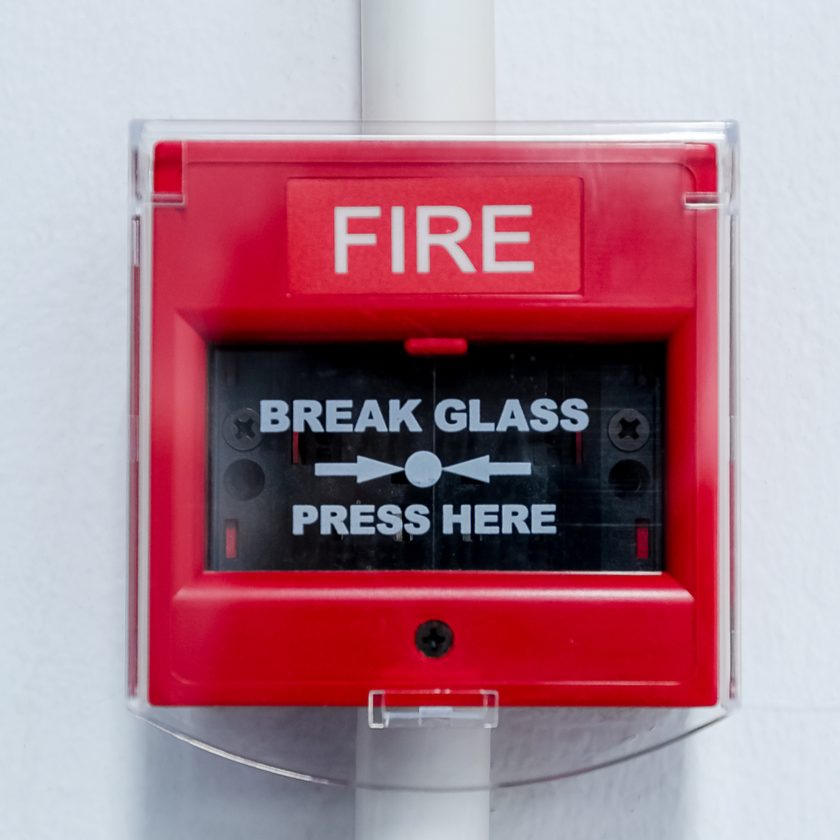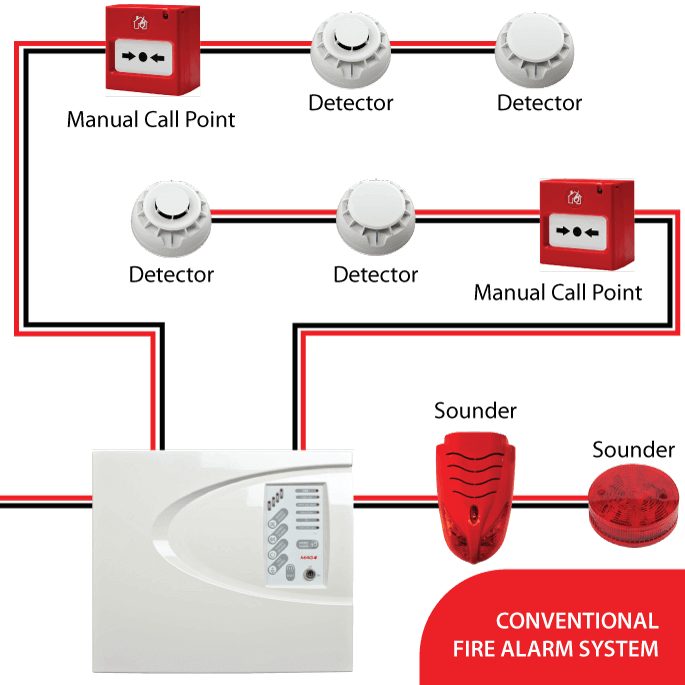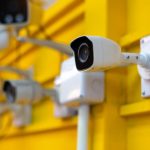Fire alarm system are essential for the safety of any building, whether residential, commercial, or industrial. They are designed to detect fires early and alert occupants to the danger, allowing for prompt evacuation and minimizing damage. In this article, we will explore the importance of fire alarm systems, their core components, the benefits they offer, and the critical considerations for choosing, installing, and maintaining these systems.
The Importance of Fire Alarm Systems
Early Detection of Fires
One of the primary functions of a fire alarm system is the early detection of fires. Smoke and heat are often the first indicators of a fire starting. Fire alarm systems are equipped with sensors that can detect these indicators well before the fire spreads. Early detection is crucial because it provides occupants more time to evacuate safely and allows emergency services to respond quickly. Fast detection and response can prevent a small fire from turning into a catastrophic event.
Protection of Life and Property
Fire alarm systems play a vital role in protecting both life and property. The immediate alert provided by these systems enables swift action, ensuring that people can evacuate the premises in time. This can significantly reduce the risk of injury or loss of life. Additionally, early detection can prevent extensive damage to property. Timely intervention by fire services can contain and extinguish the fire before it causes severe structural damage, thereby saving valuable assets and reducing financial losses.

Core Components of Fire Alarm Systems
Smoke and Heat Detectors
Smoke and heat detectors are the heart of fire alarm systems. There are various types of detectors available, including ionization, photoelectric, and combination detectors. Ionization detectors are more responsive to flaming fires, while photoelectric detectors are more sensitive to smoldering fires. Heat detectors, on the other hand, respond to significant increases in temperature. These sensors continuously monitor their environment and trigger the alarm system when they detect smoke or a rapid rise in temperature.
Fire Alarm Control Panel
The fire alarm control panel (FACP) is the system’s central hub. It receives signals from the detectors and processes them. Upon detecting a fire, the control panel activates the alarms, notifying occupants and emergency services. It also provides information about the location and nature of the fire, aiding in quick and efficient evacuation and firefighting. FACPs come with various features, such as battery backup, programmable logic, and remote monitoring capabilities, ensuring reliable operation even in adverse conditions.
Benefits of Fire Alarm Systems
Enhanced Safety and Peace of Mind
Installing a fire alarm system greatly enhances the safety of a building’s occupants. Knowing that there is a system in place to detect fires and alert everyone promptly provides peace of mind to residents, employees, and visitors. This sense of security is invaluable, as it allows people to focus on their daily activities without constantly worrying about potential fire hazards. In commercial settings, this can also improve productivity by creating a safer and more secure working environment.
Compliance with Regulations
Fire alarm systems are not just beneficial; they are often legally required. Building codes and safety regulations mandate the installation of fire alarm systems in various types of buildings. Compliance with these regulations is essential to avoid legal penalties, fines, and business interruptions. Moreover, adhering to fire safety standards demonstrates a commitment to protecting the well-being of occupants, which can enhance a company’s reputation and trustworthiness.
Choosing the Right Fire Alarm System
Assessing Building Requirements
Selecting the right fire system begins with assessing the specific needs of the building. Factors to consider include the size and layout of the premises, the number of occupants, and the type of activities conducted within the building. For instance, a large industrial facility may require different solutions compared to a small office building or a residential complex. Conducting a thorough risk assessment helps identify the most suitable detectors, control panels, and other components for effective fire protection.
Consulting with Experts
Working with fire safety experts can greatly simplify the process of choosing and installing a fire alarm system. These professionals can provide valuable insights based on their experience and knowledge of current safety regulations. They can recommend the best system design, ensure proper installation, and provide training on how to operate and maintain the system. Consulting with experts ensures that the fire alarm system is tailored to the building’s specific needs and complies with all relevant standards.

Implementing and Maintaining Fire Alarm Systems
Installation Best Practices
Proper installation is critical for the effectiveness of a fire alarm system. All components must be installed according to manufacturer specifications and industry standards. Detectors should be placed in strategic locations to cover high-risk areas, such as kitchens, electrical rooms, and storage areas. The control panel should be accessible and easy to use. Professional installers can ensure that the system is integrated seamlessly with other building safety features, such as sprinkler systems and emergency lighting.
Regular Testing and Maintenance
Fire alarm systems require regular testing and maintenance to ensure they remain operational. Routine checks help identify and rectify any issues before they compromise the system’s performance. Maintenance includes cleaning detectors, checking battery backups, and verifying the functionality of alarms and control panels. Building management should establish a maintenance schedule and keep detailed records of all inspections and repairs. Regularly updated systems are more reliable and can provide the necessary protection when needed.

Legal and Ethical Considerations
Compliance with Local and National Regulations
Adhering to local and national fire safety regulations is not optional; it is a legal requirement for most buildings. These regulations specify the types of fire alarm systems that must be installed, their placement, and their maintenance. For instance, in the United States, the National Fire Protection Association (NFPA) provides guidelines that are widely adopted by local jurisdictions. Regulations often dictate the specific types of detectors required, such as smoke, heat, or carbon monoxide detectors, and their strategic placement throughout a building. These guidelines ensure comprehensive coverage and timely detection of potential fire hazards.
Non-compliance can result in severe penalties. These can range from hefty fines to the temporary or permanent closure of the non-compliant facility. Aside from financial ramifications, non-compliance can also lead to legal liability in the event of a fire. If an incident occurs and it is found that the premises did not comply with fire safety regulations, the business owner could be held accountable for damages and injuries, potentially resulting in costly lawsuits and reputation damage.
To avoid these consequences, regular audits and consultations with fire safety professionals are essential. Fire safety audits help to identify any gaps in compliance and provide an opportunity to address them promptly. Professionals can offer invaluable expertise, ensuring that all aspects of the fire alarm system, from installation to maintenance, meet regulatory standards. Additionally, fire safety training for staff can ensure everyone knows how to respond effectively in an emergency, further enhancing safety.
Staying updated on changes in regulations is crucial for continued adherence. Fire safety standards and regulations can evolve based on new research, technological advancements, and historical data on fire incidents. Subscribing to updates from regulatory bodies and engaging in continuous education can help facility managers and business owners stay informed. This proactive approach ensures that the fire alarm systems are not only compliant but also incorporate the latest best practices and technologies for optimal protection.
Ethical Responsibility to Occupants
Beyond legal requirements, there is an ethical responsibility to protect the lives of those who live, work, or visit the building. A well-maintained fire alarm system is a reflection of the property’s commitment to safety and well-being. Transparency about the fire safety measures in place can also build trust and assure occupants that their safety is a top priority. Demonstrating this commitment can enhance relationships and contribute to a positive community and workplace culture.
Fire alarm systems are indispensable for ensuring the safety of buildings and their occupants. They provide early detection, facilitate timely evacuation, and help minimize property damage. Understanding the core components and benefits of these systems enables informed decisions when choosing and implementing them. Regular maintenance and compliance with legal and ethical standards further ensure their effectiveness and reliability. Investing in a robust fire alarm system is a critical step towards creating a safe and secure environment for everyone.


